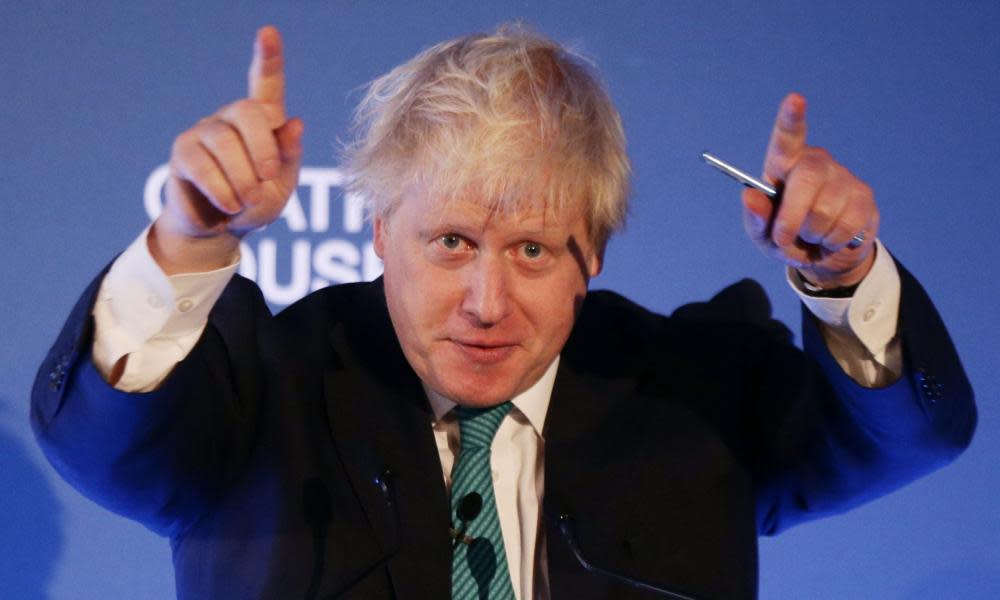Brexit deal: Johnson says now is time for EU leaders to ‘get on with it'

It is time for European leaders to “get on with it” in pushing forwards on a Brexit deal, Boris Johnson has argued, while insisting he is fully behind Theresa May’s strategy on the UK’s departure from the EU.
Answering questions after a speech at the annual conference of the Chatham House thinktank, the foreign secretary said he felt the mood of last week’s European council summit in Brussels had been more hopeful than expected.
Asked whether he would countenance the UK making a substantially higher financial settlement than the initial sum of €20bn (£18bn) talked about, Johnson said May had made a “pretty good offer” in her speech in Florence last month.
He said: “I’m glad that at the council in Brussels they seemed more positive, frankly, than I thought they were going to be, to judge by some of the anticipatory drum roll of that council.
“They have given a fair wind to the idea of themselves now discussing the new trade deal or however they want to proceed. I suggest humbly to our friends and partners in Brussels: now is the time to get on with it.”
After a brief digression in which he began quoting some Shakespeare, Johnson said EU leaders needed to “grip it, get on with it and start thinking about the future”.
He said: “I’m sure that we can both think very creatively and very positively about how to come to arrangements that suit our constituents on both sides of the Channel and benefit businesses not just in this city but in Paris and Frankfurt and across the whole of Europe.”
Asked later about his own interventions in the Brexit debate, which have prompted some Conservative MPs to demand Johnson be sacked as foreign secretary, he dismissed the idea of disunity.
“The entire British cabinet is united around every dot, comma, syllable of the Florence speech,” he said.
“We think it’s an excellent text, and an excellent basis on which to proceed and we hope our European friends and partners agree.”
While Johnson used his speech at the conference to primarily discuss North Korea and Iran, the questions about Brexit came amid a busy period after the Brussels summit.
On Sunday it emerged that five of Britain’s biggest business representative groups have written to David Davis, the Brexit secretary, calling for a quick transitional deal to avoid economic uncertainty.
“We need agreement of transitional arrangements as soon as possible, as without urgent agreement many companies have serious decisions about investment and contingency plans to take at the start of 2018,” read the letter, from the CBI, British Chambers of Commerce, the Institute of Directors, the Federation of Small Businesses and the manufacturing trade body EEF.
Also on Sunday the international trade secretary, Liam Fox, said France’s president, Emmanuel Macron, had been “completely wrong” to argue at the summit that the UK was bluffing over its talk of a no-deal Brexit.
Fox said that while he would prefer Britain to reach a trade arrangement with the EU, no deal was “not exactly a nightmare scenario”.
A more personal follow-on from the summit came with the European commission president’s chief of staff denying he was behind leaks of conversations at May’s recent dinner meeting in Brussels.
An account of the dinner on 16 October, published in a German newspaper, described May “begging for help” and appearing “anxious”, “tormented”, “despondent and discouraged”.
Martin Selmayr tweeted on Monday that he had nothing to do with the article, after Nick Timothy, May’s most senior aide until he resigned after the general election, blamed him for the disclosures.

 Yahoo News
Yahoo News 
